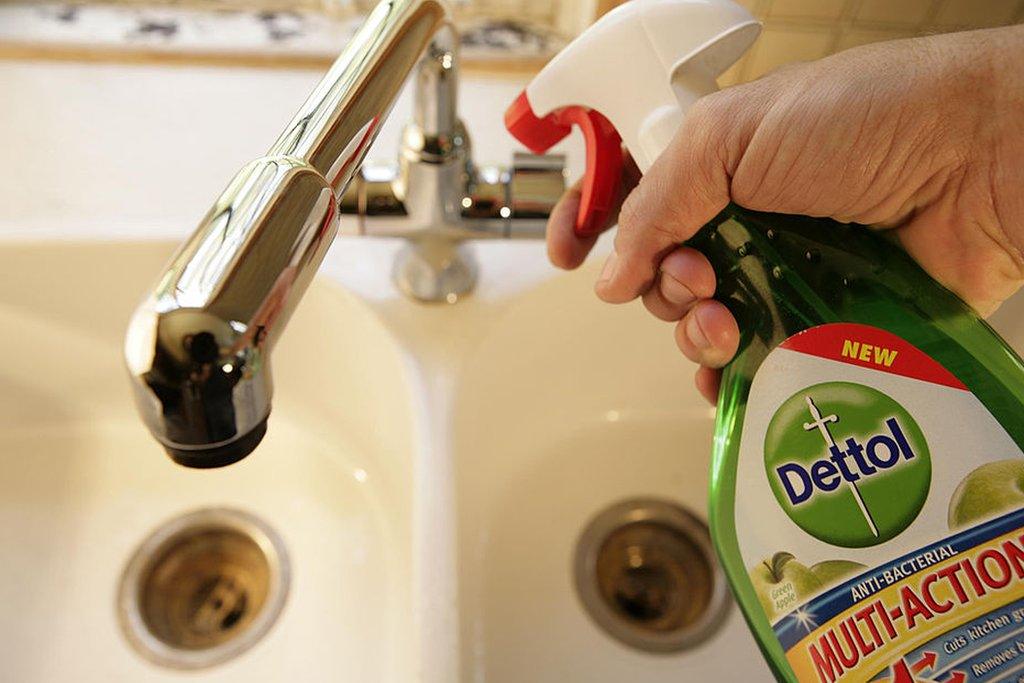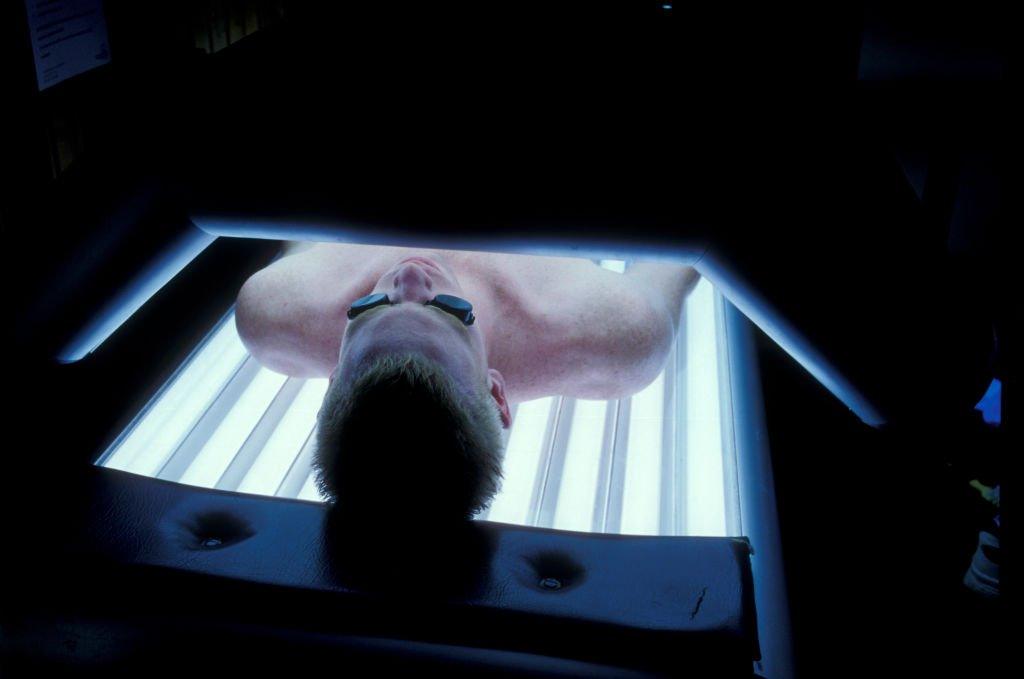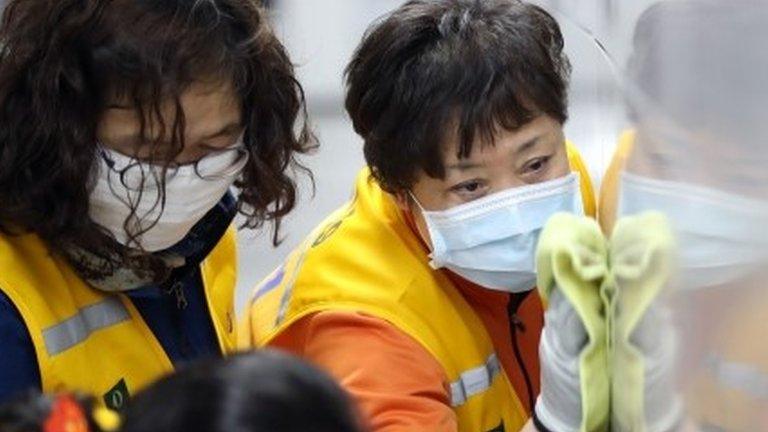Coronavirus: Trump’s disinfectant and sunlight claims fact-checked
- Published

President Donald Trump has questioned whether injecting people with disinfectants and exposing patients' bodies to UV light could help treat the coronavirus.
The Reality Check team has been looking into both of these issues.
Claim 1
"I see the disinfectant, where it knocks it out in one minute. And is there a way we can do something like that by injection inside or almost a cleaning, because you see it gets in the lungs and it does a tremendous number on the lungs."
Mr Trump suggested injecting patients with disinfectants might help treat coronavirus.
Using a disinfectant can kill viruses on surfaces, but this is crucially only about infected objects and surfaces - not about what happens once the virus is inside your body.
Not only does consuming or injecting disinfectant risk poisoning and death, it's not even likely to be effective.
Doctors have appealed to people not to ingest or inject disinfectant, as there are concerns people will think this is a good idea and die.
"Injecting bleach or disinfectant at the dose required to neutralise viruses in the circulating blood would likely result in significant, irreversible harm and probably a very unpleasant death," says Rob Chilcott, professor of toxicology at the University of Hertfordshire."
He adds that it would also "not have much effect on viral particles within the cells".

It is highly dangerous to use disinfectants inside the human body
Reckitt Benckiser, a leading manufacturer of disinfectant products including Lysol and Dettol, has issued a statement in response to the president's comments. It said: "We must be clear that under no circumstance should our disinfectant products be administered into the human body (through injection, ingestion or any other route)."
Mr Trump has subsequently defended his comment claiming "I was asking a question sarcastically to reporters."
Claim 2
"I said supposing you brought the light inside the body, which you can do either through the skin or in some other way. And I think you said you're going to test that too... So, we'll see, but the whole concept of the light, the way it kills it in one minute - that's pretty powerful."
Mr Trump has also floated the idea of exposing patients to "ultraviolet or just very powerful light".
There is some evidence that, in general, viruses on surfaces die more quickly when exposed directly to sunlight. But we don't know how much or how long they have to be exposed for UV light to have an effect.
And again, this is only about infected objects and surfaces - not about what happens once the virus is inside your body.

UV light won't make a difference if you're infected with the coronavirus
By the time the virus has taken hold inside your body, no amount of UV light on your skin is going to make a difference.
"UV irradiation and high heat are known to kill virus particles on surfaces," says Dr Penny Ward, visiting professor in pharmaceutical medicine at Kings College London. But "neither sitting in the sun, nor heating, will kill a virus replicating in an individual patient's internal organs".

EASY STEPS: How to keep safe
A SIMPLE GUIDE: What are the symptoms?
CONTAINMENT: What it means to self-isolate
MAPS AND CHARTS: Visual guide to the outbreak



- Published12 March 2020
